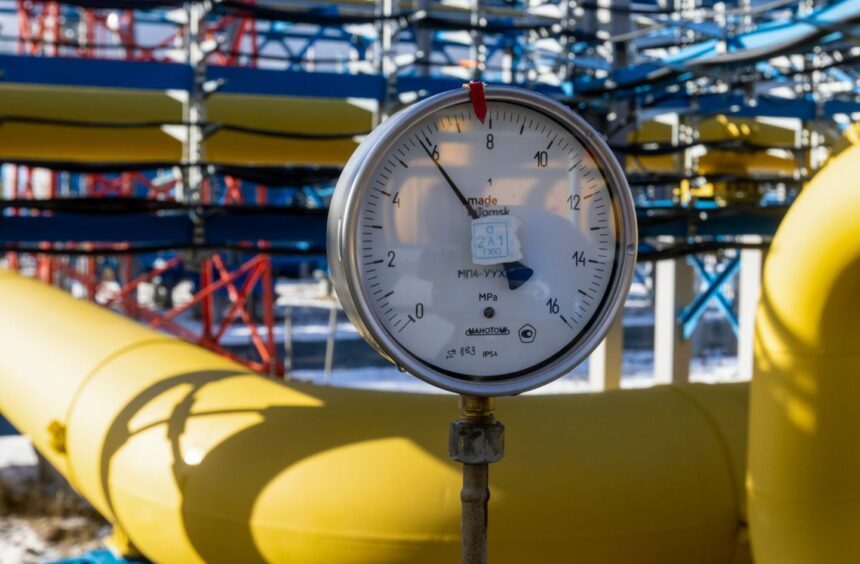
European lawmakers are under pressure from Ukraine to block plans to treat gas as a green asset, plunging into serious doubt an EU Parliament vote that not long ago seemed set to endorse the proposal.
The vote is set to take place on Wednesday, and was supposed to mark the easy passage of a New Year’s proposal by the European Commission to include gas and nuclear energy in the EU’s so-called green taxonomy. But Vladimir Putin’s invasion of Ukraine — and the energy crisis it fanned — has upended that process.
Just last week, Ukraine’s ambassador to Germany called on European lawmakers to reject the Commission’s proposal, warning that it would benefit Russia and perpetuate European reliance on its gas supplies.
“Including gas only serves to cement Putin’s grip on power and his reign of terror over Europe,” said Svitlana Romanko, a Ukrainian environmental lawyer and founder of campaign group Razom We Stand. “It’s the best gift for Putin.”
It’s an 11th-hour challenge to a plan that has angered climate activists from the get-go. Until recently, the addition of gas and nuclear power to the EU’s green taxonomy seemed an inevitability, with the Commission arguing it would help coal-reliant nations transition toward greener energy at a more affordable cost. But Putin’s war in Ukraine has thrown the role of gas as a transition fuel into question amid soaring prices and the possibility of a cut-off of supplies.
There are already signs that support for the revised taxonomy is waning. An EU Committee vote last month defied predictions, hinting at what may become an embarrassing defeat for the Commission.
“It’s about what is the guide for the future, what is sustainable,” said Paul Tang, an EU lawmaker. Putting gas in the taxonomy “only increases the dependency on Russia.”
Some of the Commission’s proposals:
- Gas projects replacing coal and emitting no more than 270 grams of CO2 equivalent per kilowatt-hour can get a temporary green label, or if annual emissions don’t exceed an average of 550 kilograms per kilowatt-hour over 20 years.
- Such plants would have to obtain construction permits by 2030, and have plans to switch to renewable or low-carbon gases by end-2035.
- Nuclear is eligible if new plants that are granted construction permits by 2045 avoid significant harm to the environment and water resources.
- Funds need to enhance disclosures to investors on nuclear and gas holdings under the taxonomy.
If lawmakers vote against including gas and nuclear power in the green taxonomy, the Commission will have to go back to the drawing board. Alternatives include potentially creating a separate amber rulebook for transition activities, in a process that could take months.
For the Commission’s plan to falter on Wednesday, at least 353 of the EU Parliament’s 705 lawmakers will have to vote against it. What’s more, some key lawmakers have been forced to stay away from the vote after testing positive for Covid, adding a further layer of suspense to the process. If the threshold isn’t met, gas and nuclear power will be included in the green taxonomy from the start of next year.
It would still be possible for EU member states to reject the delegated act, but the bar there is very high, requiring some 20 of the EU’s 27 members to oppose it. That said, individual countries like Austria and Luxembourg have said they would explore a legal challenge.
How the conservative European People’s Party — the largest political group in the EU Parliament — votes will be a key factor in the outcome of the ballot, which is mostly backed by the Greens and Socialists. Christophe Hansen, a lawmaker for the EPP, said he expects his party’s members to deliver a more decisive rejection of the Commission’s proposal than they did at the EU Committee level last month.
“We’re still having a discussion tonight,” Hansen said. “The percentage is definitely growing in my political group.”